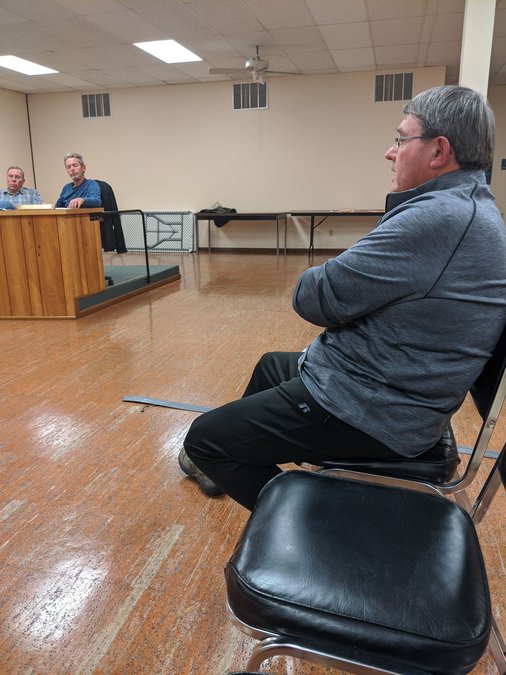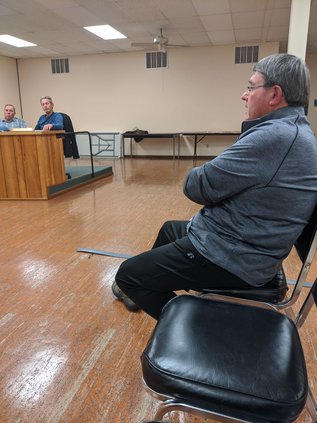LARNED — The Larned City Council met Monday night for a work session concerning what its next steps concerning the pool will be. Following a presentation by Tim Schaller, a local architect and neutral third party, council members and Mayor William Nusser appeared hopeful the situation was not as dire as previously feared.
At the Dec. 2 meeting, the Larned City Council heard from the pool advisory committee, which recommended either the pool be repaired or replaced within the next year, cautioning that the safety of the decking surrounding the pool as well as the condition of the pool filtration system were both of top concern. Council members were hopeful safety of the pool could be insured at least short term until funding can be raised for either a major overhaul or new pool project is required. City manager Brad Eilts was asked to consult with a disinterested third party to determine what, if anything, might be feasible.
Eilts reached out to Schaller. After several meetings they fleshed out a step-by-step plan to determine if the pool could be made safe enough to open at least the for a year or two. He shared his insights with the council.


Civil engineers Schaller visited with recommended a particular pool consultant, but he rejected this, noting they were likely to recommend starting over rather than making repairs, which the city is not prepared to pay for yet.
He suggested picking the worst thing and fixing it first. Top concerns for the Larned pool are the heaved decking surrounding the pool and the leaking pipes and filter making up the pool’s circulatory system.
Schaller suggested the city run a camera through the pipes to determine where leaks may be, and then hire a pipe lining contractor to seal leaks. He suggested this fix could be guaranteed for up to 50 years. One contractor has already identified many of the leaking issues, he said.
Then, he recommended, fix the decking where needed. These could be done the first year, and additional repairs considered in a subsequent phase.
“It’s not like you have to buy the whole enchilada in one shot here,” he said.
Schaller pointed out that the current filtration system is working, and it is likely circulating faster than a new system might. It simply needs some repairs.
The pool shell may also require sandblasting, sealing and recoating. That could be next. Finally, pouring a new pool floor with four inches of cement could be considered. The city could either hire a contractor to negotiate the work and supplies in good faith, or city staff could simply do it, he added.
“Look at what you can fix, but do it in a methodical way,” he said.
Council person Dennis Wilson asked if any of the repairs could be salvaged for a new pool down the line. Only the filtration system could be reused, Schaller said.
Each of the suggestions will cost the city, but not as much as they might think, he suggested. He offered names of various suppliers, vendors and manufacturers the city may consider contracting with. Eilts also asked Allen Taylor, Streets Department superintendent, if some of the decking work and repairing and sealing the pool shell could be done by employees in his department. Taylor was willing to take a look.
Council felt many of the recommendations were sound, and requested a camera scope of the pipes, with pipe sealing anticipated. Provided repairs indeed turn out to be feasible, the goal of buying time for major repairs or replacement appeared within reach.





